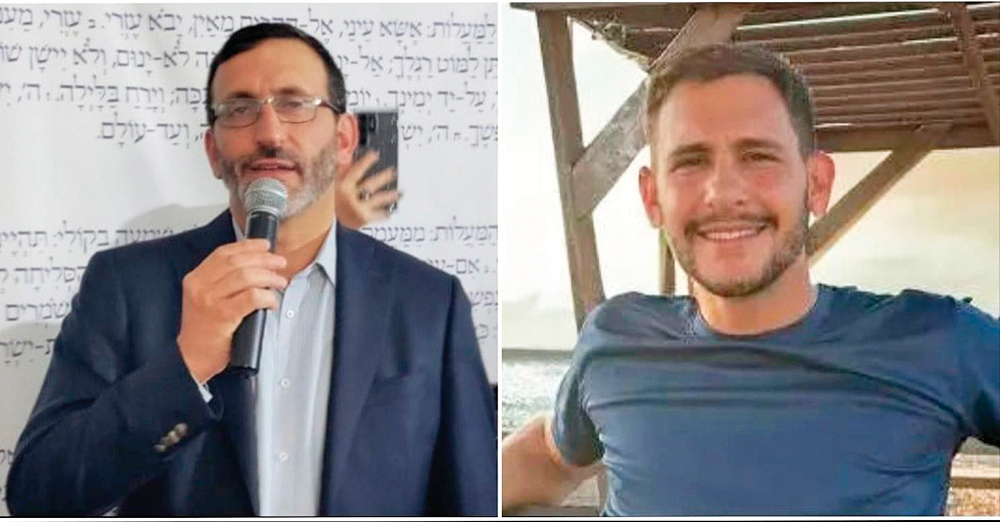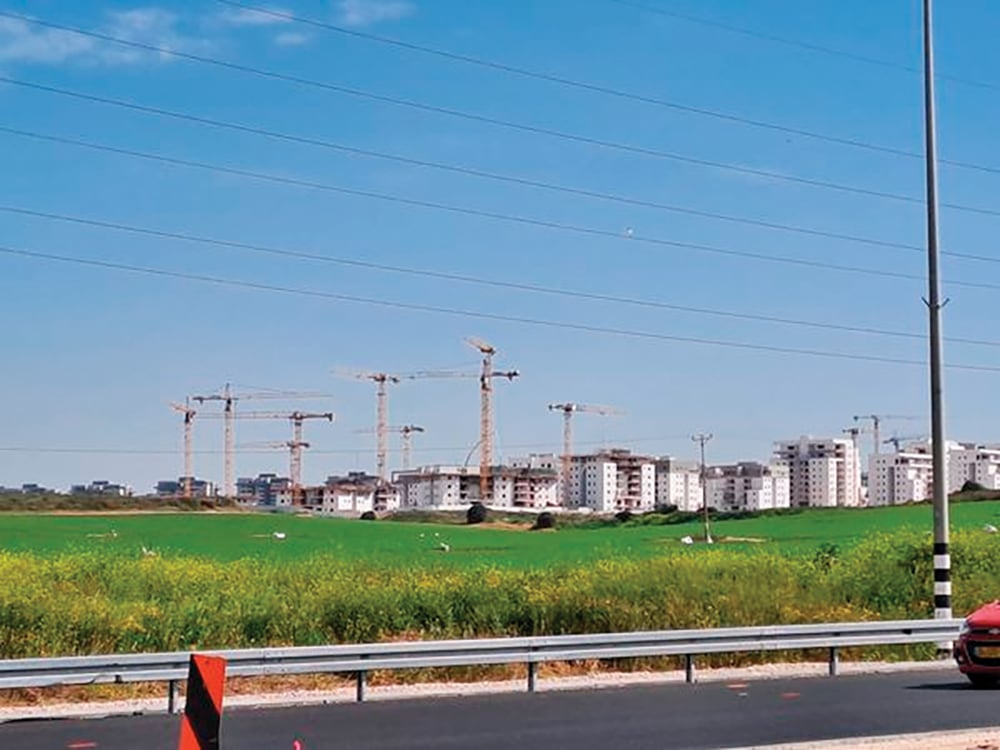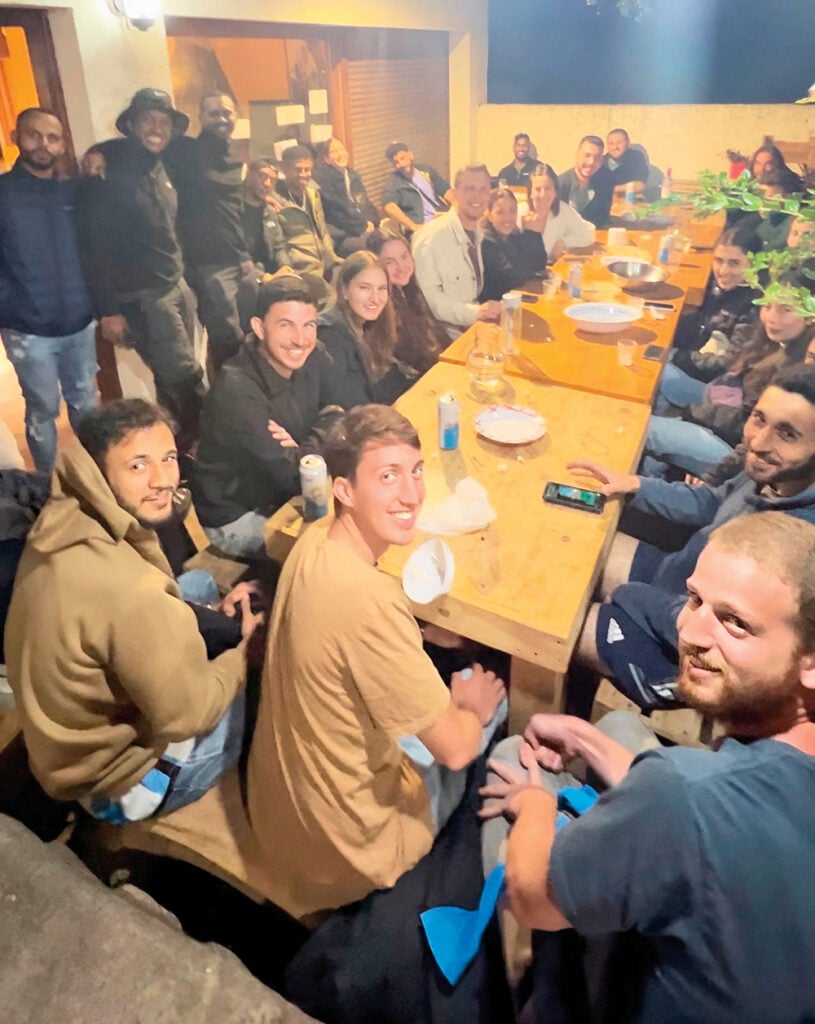
Remember the Seventh Day
Boaz Klein, a Chabad emissary in Bariloche, Argentina, wrote to me that while thousands of Israelis pass through their Chabad House each year, he and his wife have been seeing a new and special group that they are especially happy to host: army reservists who just finished serving in Gaza.
“Each evening we prepare a barbecue with hummus, shakshuka and hot soup. Yet, it’s not just about the food. The essence of these events lies more in the heartfelt conversations that emerge. One statement that is commonly heard here is, ‘Remember the seventh day,’ referring not only to Shabbat but to another significant seventh day—Oct. 7.
“The message is to safeguard at all costs what we all felt on that day—the heartrending pain, but also, the extraordinary unity and strength that came out in full force. In a flash, like a bolt of lightning, we were reminded of who we truly are and that we are one. Truly, we must never forget the seventh and, in that spirit, we must take responsibility for our words and for one another.
Please make it possible for these reservists to return to a unified home. I want to shout from Argentina to Israel in the name of the hundreds of fighters I have met here: Remember the seventh!”

In Stressful Times:
Hold on to a Pasuk
Renana Seri is the mother of three small children whose husband has been called up to serve in Gaza for the second time. She sent me the following technique she has developed to help herself cope with the stress.
“Since the beginning of the war, whenever I found myself overwhelmed with fear and anxiety about the future, I would choose a pasuk from Tanach. The verse I chose today is from Tehillim 112:7. ‘He is not afraid of evil tidings; his heart is firm, he trusts in Hashem.’
“These are difficult times; we are being constantly exposed to bad news and nerve wracking reports. But today, this verse filled me with security and hope. The words are ancient, yet they are so relevant! Of course, we need to be prepared to protect ourselves and to follow protocols, but our story is much bigger than what is happening around us. It’s important to remember that we have a special connection with God. Our enemies are transient, but we are eternal. Good will ultimately defeat evil, even if the road ahead is long.
“The Biblical verses are so powerful, connecting me to a reality that is infinite and not limited to what is revealed in our world.”
In addition to sending me a few verses that inspired her, Renana recommended that everyone find the pesukim that speak to them and provide them with strength during this time.

in Bariloche.
Our Tefilot are Never in Vain
Captain Daniel Peretz fell in battle on Simchat Torah. The soldiers under his command saved dozens of people as he continued to fight in his tank for hours. Daniel was considered missing and then presumed captured. Just two weeks ago, he was declared fallen and his family began to sit shiva. His father Rabbi Doron Peretz, executive chairman of World Mizrachi, sent the following message to communities worldwide:
“After 163 heart-wrenching days of angst, anxiety, prayers and mitzvot in Daniel’s merit, last week he was declared fallen on Simchat Torah. So many people prayed for him over the past five months—were those prayers in vain? Especially since before we began davening for him, he had already been killed.
“Nothing could be further from the truth for two reasons. Although this wasn’t the outcome that we wanted, it gives solace to know that he didn’t suffer. It is a painful loss, but we don’t need to worry about him. That is a relief, and it is because of your tefillot that we were brought this closure.
“Additionally, we always davened for Daniel amongst all the hostages. There are so many other hostages—including Matan Shachar ben Anat from Daniel’s tank—and therefore they were never only for Daniel. Not only were the prayers not in vain, but they actually brought our anxiety as to Daniel’s fate to an end, enabling us to move on to the next painful stage of mourning.
“Moreover, prayer is, first and foremost, something that changes us. The Hebrew word “to pray,” lehitpalel, is reflexive. It is not only about impacting the world, but first, about impacting ourselves. Once we change ourselves, we can change the world. And we see how that has happened: barriers between people have come down and Am Yisrael has become more united. All the acts of kindness, challah bakes, mitzvot, tefillot, etc. have changed us, bringing us closer to God and to one another—and that lasts forever.
“As we read in this week’s parsha about the sacrifices, we recall the words of our Sages that prayers are in place of sacrifices. May we continue to pray and to feel as one, and in that merit may only good things happen for the Jewish people.”

A Picture That Says a Lot
The war is at the half-year mark. We’ve seen so many painful, heartrending photos, but yesterday, I received one that was a source of optimism. Col. (res.) Ram Shmueli, principal of the Alliance School in Haifa, sent me this picture and wrote, “When we look at the Sderot skyline these days, what are we seeing? Cranes, a sign that we are building, prevailing. Those who push Israel to the corner, killing and destroying, ultimately face the consequences of total ruin and a life of poverty. It’s crucial for us to shift our perspective, to cease the self-criticism and to start recognizing our achievements. We must focus on building and creating, on raising the next, wonderful generation. Because when there are cranes on the horizon, there is growth, there is a future, there is hope.”
*Translated by Yehoshua Siskin and Janine Muller Sherr
Sivan Rahav Meir is a primetime news anchor on Israeli television with a regular column in Yediot Aharonot, Israel’s largest newspaper, and a weekly radio show on Galei Tzahal (Army Radio). She has a tremendous following on social media for her insights into Jewish life and tradition. Her lectures on the weekly Torah portion are attended by hundreds, and the live broadcast attracts hundreds of thousands more viewers across the globe. She was recognized by Globes newspaper as the country’s most popular female media figure and by the Jerusalem Post as one of the 50 most influential Jews worldwide. She lives in Jerusalem with her husband Yedidya and their five children.












